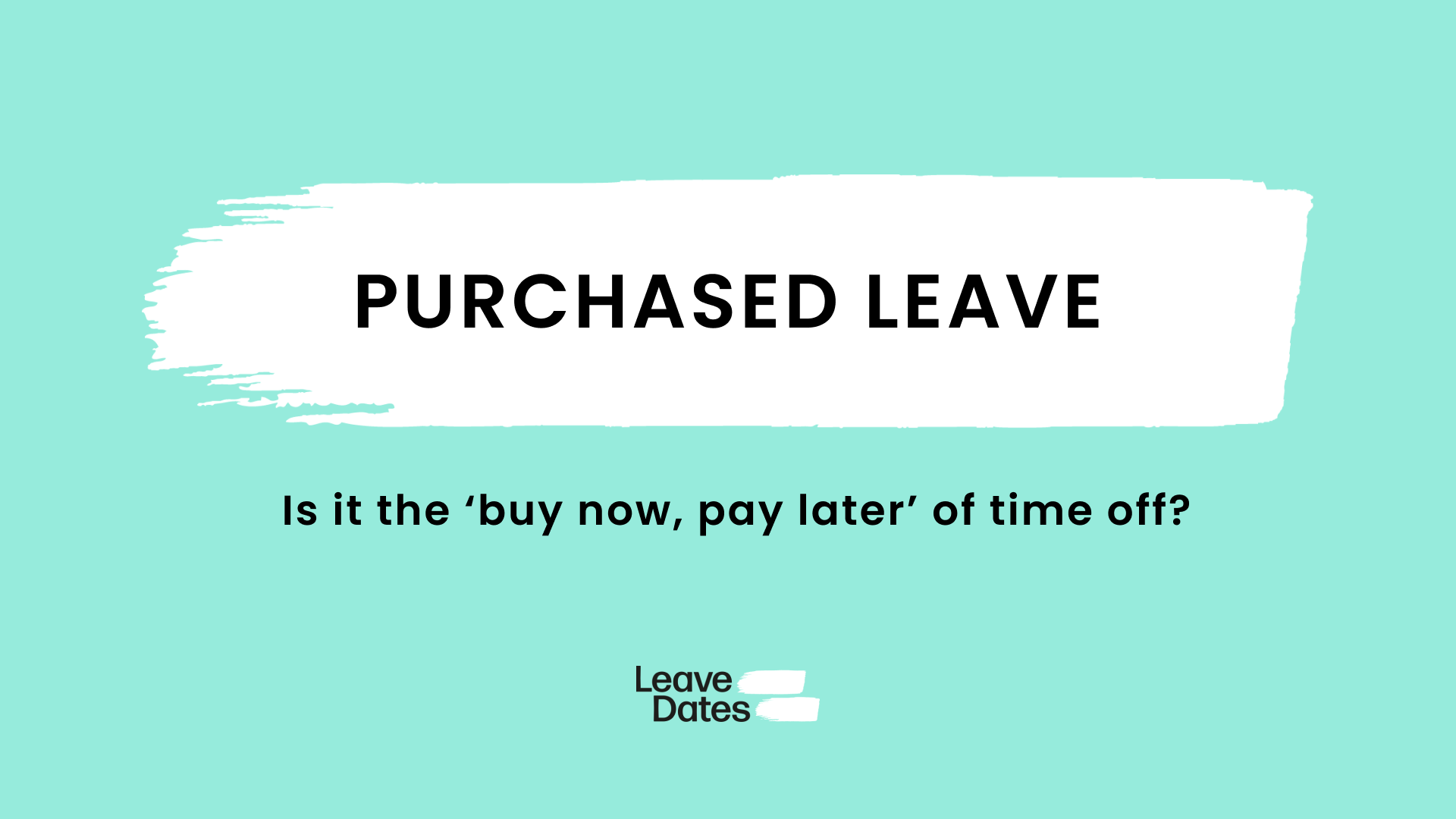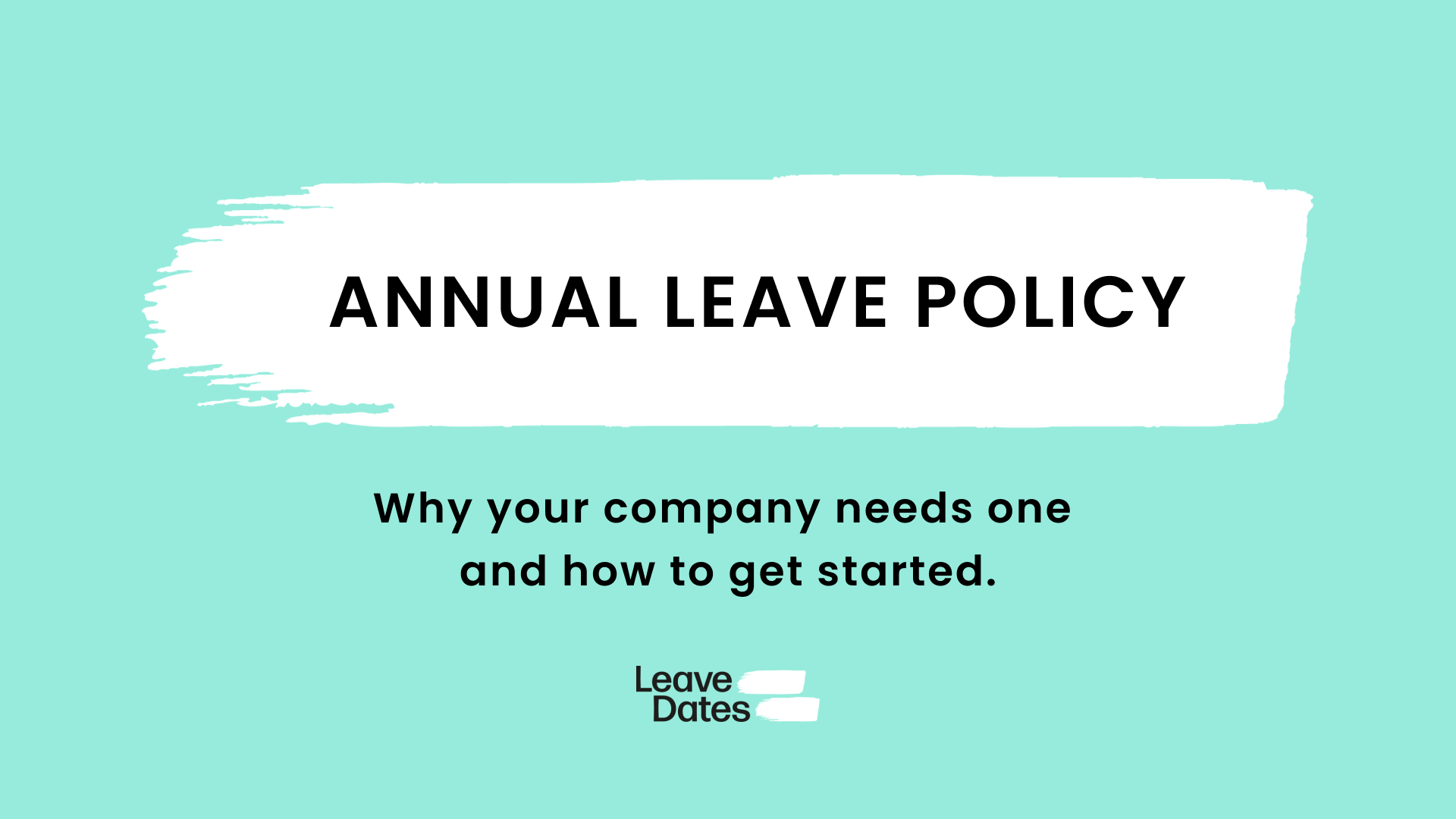
Picture this: you’re eyeing up a week-long luxury escape to Bora Bora, your finger lingering over the mouse ready to book those flights. You just need to check the leave calendar first…
Oh, you forgot about that hen party. Then the destination wedding a month later. Aunty Sal’s birthday trip to Centerparcs that had to be mid-week. Those extra days off every week over summer when the kids were off (hard to remember you’re on “holiday” at soft play, isn’t it?). And that’s that – no more annual leave left. No Bora Bora this year.
But what if you could just… buy some more?
In a world where time feels more and more like a luxury reserved for the financially blessed, purchased leave might seem like yet another way to slap a cost on something we should all be enjoying anyway in a healthy work-life balance. Like using Klarna for your food shop, is purchased leave just a sticking plaster to cover up an inadequate leave policy. Or is it a way to help people take more time off when they need it, without a massive hit on pay day?
Let’s dive in and uncover the truth behind this interesting approach to leave, exploring what it is, what the pros and cons are, and how people are using it.
Table of contents
- What is purchased leave?
- Isn’t that just the same as unpaid leave?
- What’s so great about that?
- What about tax and pensions??
- Who’s using purchased leave?
- Key takeaways
What is purchased leave?
A purchased leave scheme is where your employer lets you buy extra hours/days of leave, on top of your normal annual leave entitlement. You pay for this leave via deductions from your salary, typically in 12 equal instalments across the year. It’s also sometimes called a ‘holiday buy back scheme’.
It's usually applied as a day rate, much like holiday or sick pay would be calculated. Your day rate would be worked out as your annual salary divided by the number of days you work each year.
So, if your day rate is £100 and you want to buy 4 days extra holiday, that’s going to cost you £400. Spread over the year, that’s just over £33 per month.
Some schemes go further than this, letting you bank leave and carry it over to the next year, and even sell leave that you don’t want or aren’t going to use (provided you don’t go below the legal minimum of 20 days per day).
Isn’t that just the same as unpaid leave?
Yes, in the sense that you’re still not being paid for the leave you’re taking, but you’re spreading that cost out beyond the pay cycle you’ve taken the leave in. This is great if, for example, you’ve had to take unpaid leave because of a stressful situation at home. You don’t want to add money worries on top of that when it gets to the end of the month.
Essentially, it’s unpaid leave with added flexibility.
What’s so great about that?
In a world full of brands trying to entice you into spending money you haven’t earned yet, you might wonder if purchased leave isn’t just another way to get you to buy something you can’t afford – in this case, days off. Yes, there’s a cost – in the sense that you’re not getting paid what you would have been if you were working – but no one is “selling” anything here.
Your employer isn’t trying to persuade you into taking more time off so that they can save money on their wage bill. There’s no credit, no incentive, no profit. The only thing they get out of this is happier, better rested staff. They’re trying to help you by removing a potential obstacle to taking time off, with more options and more flexibility.
The main benefit of the extra flexibility in spreading the cost of unpaid leave is that it helps staff to manage personal cash flow. There is a big financial barrier to taking unpaid leave, but most people will need or want to take time off outside of their annual leave at some point.
The universe didn’t get the memo about the cost of living crisis and decide to go easy on us for a bit. People still get ill, have accidents, split up, move house, forget about half term and panic – but the last thing anyone needs is another hit to the bank balance whenever ‘life’ happens. Knowing you’ve got some extra days off in the bank that are already paid for can give you peace of mind. It means that you can get flights booked for your planned holidays and still be covered if anything awkward comes up later.
Let’s go back to our earlier example. If you bought four extra days off and decided to take them all at once so you could move house without rushing around, using purchased leave your pay packet will only be down by £33 that month. This leaves you still with plenty of cash for a takeaway and a glass of fizz while you unpack the kitchen! Of course, you’ll still pay the full amount over time, but if you’d had to take it as unpaid leave, that first pay day in your new home would not have been fun.
No one is stopping you from taking unpaid leave in one big hit if you can afford it and would prefer to get it over and done with – purchased leave just gives you another option.

What about tax and pensions?
There are a few things to consider and questions you might have about purchased leave from an admin perspective – tax, pensions, all that lovely stuff – which are definitely worth knowing about. Even if you don’t need the extra time off, there could be good reasons to take it.
First, there may be a tax benefit. In the UK, most holiday purchase schemes work on a salary sacrifice basis. This means your gross pay will be reduced, lowering the amount of tax and National Insurance that you pay. For bigger earners, and/or those for whom time has more value than money, this can mean you pay less tax/student loan or avoid a higher tax bracket if you’re close to the threshold.
For those close to the lower earnings limit, you’ll want to check that taking extra purchased leave doesn’t mean you lose entitlement to state benefits (statutory maternity pay, state pension etc). For company pensions, you should ask whether contributions will be affected and factor this in. Some companies will still make contributions based on your full salary (meaning you’re actually better off with purchased leave), others will pay based on your (reduced) gross pay.
Who’s using purchased leave?
Purchased leave seems to be more widespread in the public sector and state-funded organisations. Think councils, schools, hospitals etc. These are also typically the industries where budgets are most limited and so, inevitably, leave policies are less generous in terms of paid time off. These organisations often want to offer more to their staff, but their hands are tied by red tape. This is a way of helping people to take more leave if they want or need it, without drawing from their already tight budgets.
By contrast, the private sector, especially family-run businesses, tend to be the ones who can more easily go above and beyond basic legal requirements in terms of leave. That means you’re less likely to see purchased leave, and might instead get things like paid birthday leave or extra mental health days. This isn’t a criticism of public sector companies – quite the opposite. As an innovative approach, purchased leave enables them to bypass budgets and gatekeepers to do more for their staff where they can.
Key takeaways
So, is it a cash grab, or step towards workplace nirvana? Probably neither. There’s no genie granting us our wish of never-ending days off, but it does make unpaid leave more affordable and accessible. To return to our snappy title, this definitely isn’t Klarna – there’s no line of credit, no profit being made from anyone. It’s also not a ‘have your cake and eat it’ scenario. It might feel like you’re getting paid while you’re on (extra) holiday, but you’re essentially being paid less on the days you do work, to cover it.
As long as you remember that you are paying for the leave, in the form of salary sacrifice, if that sacrifice is worth it to you and won’t throw up any nasty surprises later on, purchased leave is empowering. It puts you in control, both of your leave allowance and your personal finances, and adds flexibility to what can otherwise be quite rigid systems.
In summary, purchased leave policies are helpful and well-intentioned, a genuine attempt to help people take time to rest, recuperate or just relax, by removing (or at least lowering) the financial barrier. More paid leave would be even better – but unlimited paid leave is not the norm, and likely never will be in many sectors. But this extra flexibility makes for a better version of unpaid leave, which can only be a good thing.
There will always be a place for unpaid leave, and anything that makes this easier for people to take gets a big thumbs up from us! Of course, the more leave people are taking (paid or unpaid), the harder it can be to keep track of. To avoid conflict and confusion, holiday tracking software keeps everybody happy and business ticking over as usual.



